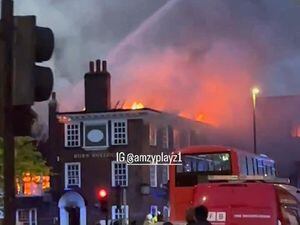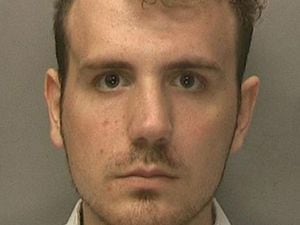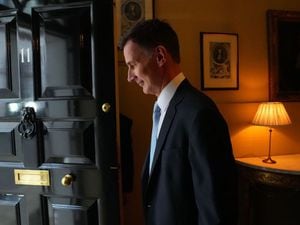Homeless deaths rise 8% in return to pre-pandemic levels
Nearly two in five deaths were related to drug poisoning.

Some 741 deaths of homeless people were registered in 2021 in England and Wales, up 8% on the previous year, estimates show.
The increase means the number of deaths has returned to pre-pandemic levels after a drop in 2020.
It is “too early” to say whether the rise signals the return of an upward trend in deaths that was under way before Covid-19, however.
The estimates published by the Office for National Statistics (ONS) show that 26 homeless deaths registered last year involved coronavirus – twice the number in 2020.

London had the highest number of deaths at 154 – 21% of the total – followed by north-west England at 114 (15%).
James Tucker, of the ONS social care and health division, said: “The latest figure is more in line with pre-pandemic levels following a notable fall in 2020, although it’s too early to say whether this is a resumption of an upward trend in homeless deaths.
“Any death in these circumstances is a tragedy and our estimates are designed to help inform the work of everyone seeking to protect this highly vulnerable section of our community.”
Estimates of homeless deaths in England and Wales rose in the years before Covid-19, from 482 registrations in 2013 to 778 in 2019.
The dip in 2020, to 688, is likely to reflect the impact of the Everyone In scheme, which saw thousands of homeless people given emergency accommodation at the start of the pandemic to protect their safety.
This made it difficult to identify some of the deaths of homeless people housed under the scheme.
While the 741 deaths in 2021 represents a return to pre-pandemic levels, it is “significantly higher” than estimates for the period 2013 to 2017, the ONS added.
Polly Neate, chief executive of homeless charity Shelter, said the figures were “utterly awful and unacceptable”, adding: “Our frontline services are seeing more people who’ve run out of options, are facing homelessness, and the very real possibility of sleeping rough.
“This is going to be one of the toughest winters yet as so many people battle rising rents while housing benefit stays frozen.
“The Government promised to end rough sleeping, but things are getting worse not better. They must immediately unfreeze and increase housing benefit to protect people from the ravages of homelessness this winter, and to keep people off the streets for good it has to invest in building good quality, supported social homes.”
Her comments were echoed by the charity Crisis, which said its services are preparing for “an incredibly challenging winter, with thousands facing the brutality of homelessness as the rising cost of living pushes them to breaking point”.
Chief executive Matt Downie said: ”These dire economic times must not lead to more people falling through the cracks and dying needlessly on our streets.
“We can stop this before it’s too late. We desperately need more social homes and for the UK Government to invest in housing benefit so it covers the true cost of rents. Only decisive action will ensure everyone has a safe place to call home and prevent more loss of life in the future.”
Due to delays in registrations, around half of the deaths registered in 2021 took place in previous years, the ONS said.
The figures mainly cover people who were sleeping rough or using emergency accommodation such as homeless shelters at or around the time of death.
The total number of deaths includes people who were identified from death records held by the ONS, together with an estimate of the most likely number of additional registrations not identified as homeless people.
Males accounted for 87% of deaths registered in 2021 compared with 13% for females, a ratio similar to previous years.
An estimated 259 deaths were related to drug poisoning, accounting for 35% of the total.
Alcohol-specific causes and suicide accounted for 10% (71 deaths) and 13% (99) respectively.
Together these three causes accounted for an estimated 58% of homeless deaths registered last year, a proportion consistent with previous years.
A Government spokesperson said: “Good progress has been made towards tackling rough sleeping with the number of people sleeping rough down 49% since 2017. But we also know how tough many people are finding things in the current economic climate.
“These statistics are another reminder that there is still much more to be done. Our goal remains to keep people off the streets in the first place and to get those on the streets the help they need.
“We are providing £2 billion over the next three years to tackle homelessness.”





